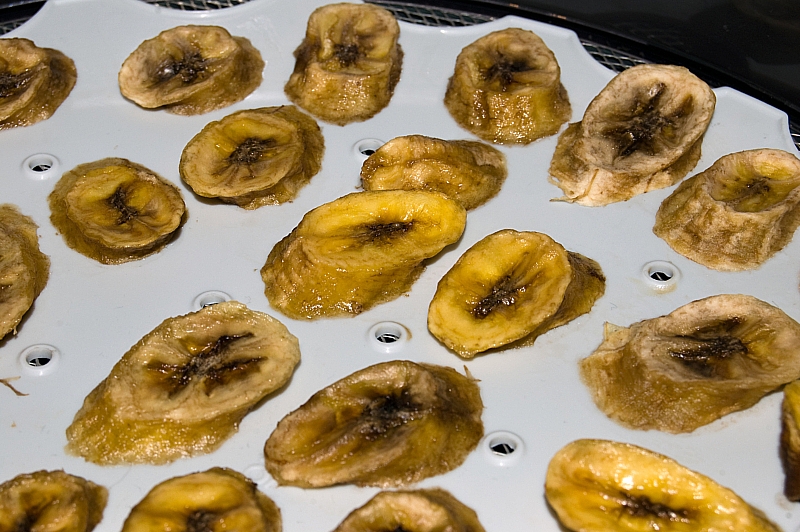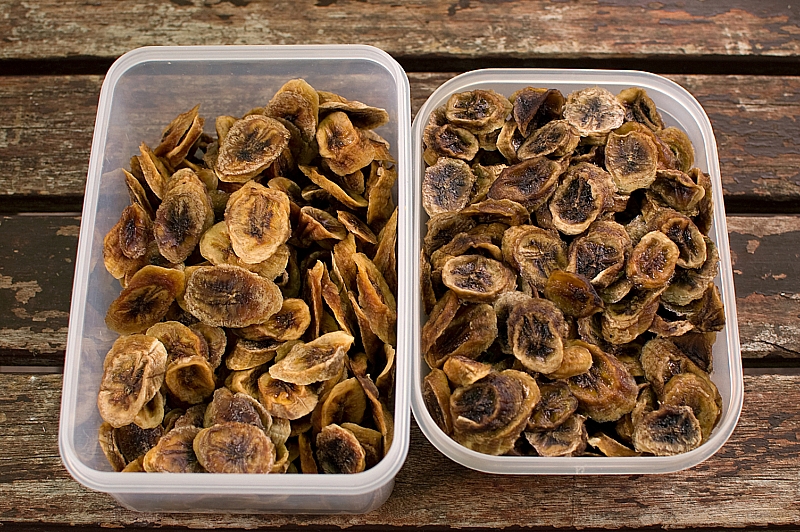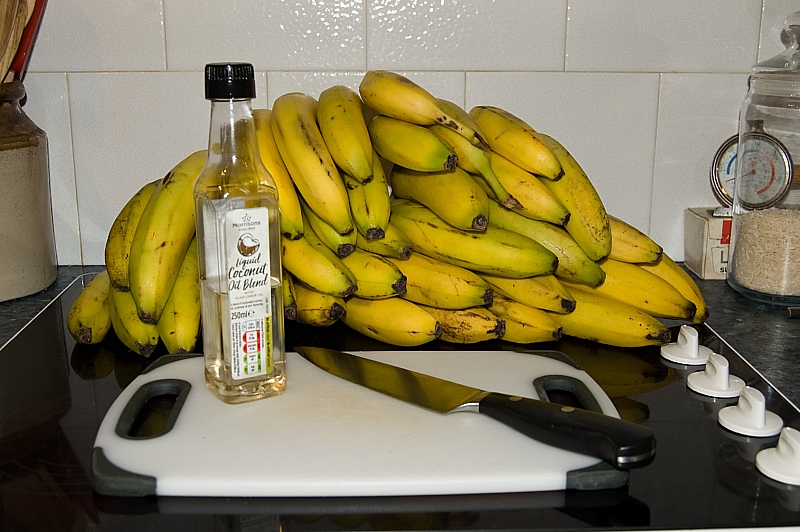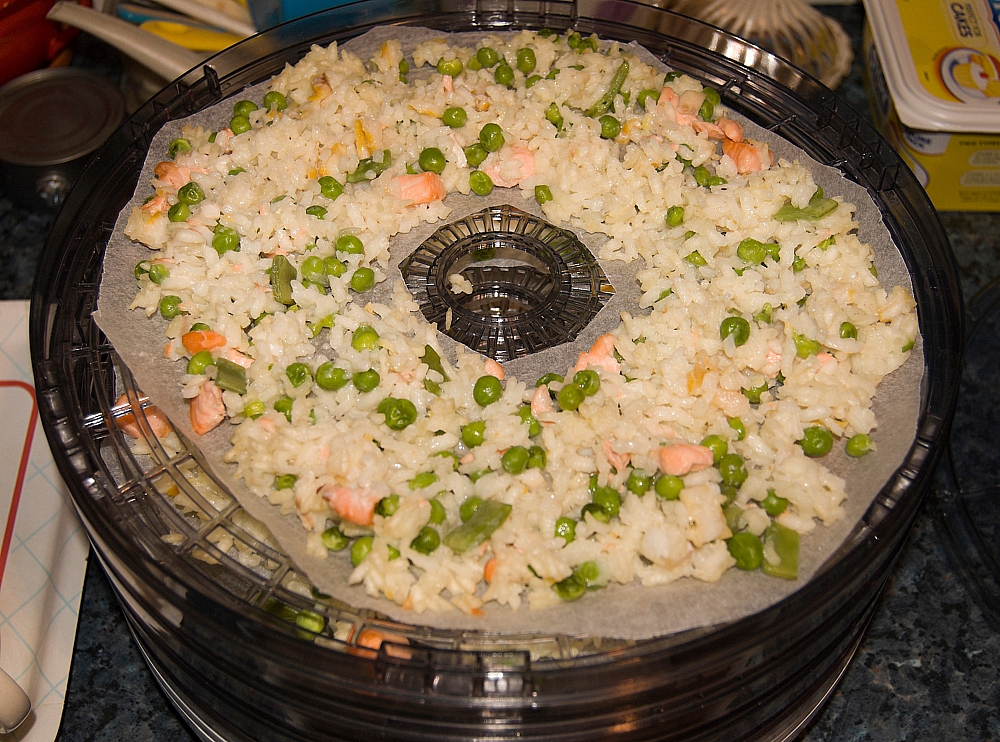There are a couple of important bits here - which oil to use on your banana, and how to apply it. The rest is innuendo-free.
After trying a few oils, I've found that coconut oil is the best option. There are quite a few options available in supermarkets, the best I've used so far is Morrisons Liquid Coconut Oil Blend which has 80% fractionated coconut oil, the rest is sunflower oil and some flavouring. It's cheap, easy to use, and a small bottle lasts for ages - and it's the magic ingredient. Don't be tempted to use the waxy "solid" oil - it's a pig to work with and doesn't yield better results. During the drying process most of the oil is driven off, leaving only a hint of coconut which lets the banana taste come through really well. As a side benefit, it makes the house smell nice during the drying phase.
The oiling method is quite simple, the main thing is to get full coverage of your banana using the smallest possible amount of oil. Peel the over-ripe bananas (if they are starting to blacken that's a good thing) and use a brush or clean fingers to apply the tiniest amount of oil to the surface of them. Leave them until the oil has soaked in, which usually takes about 10 minutes tops - if it takes any longer you've used too much oil.
Of course, the skins and any bad bits go into one of the compost bins to feed next year's spuds. Nothing's wasted.
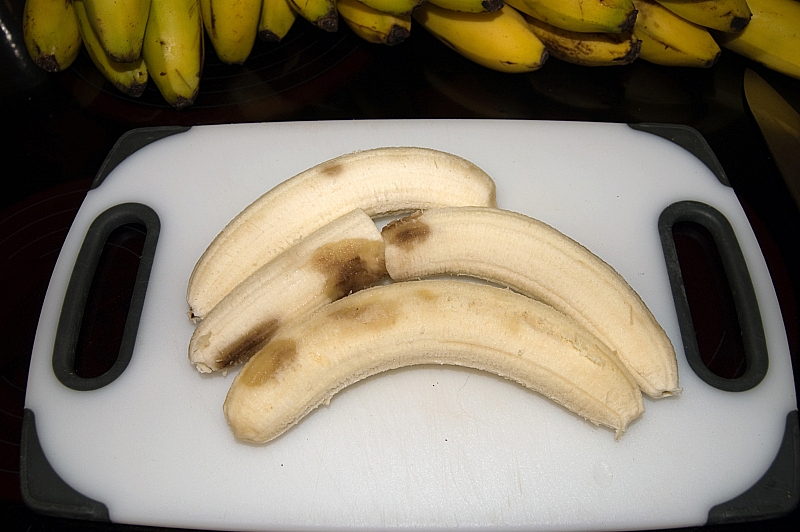
Peeled
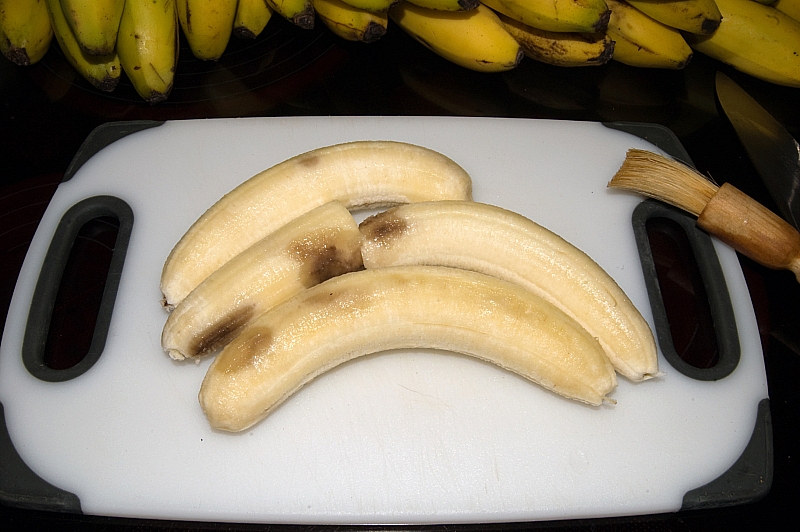
Oiled
After that, use a chopping knife to cut the bananas into suitably sized/shaped chunks. I prefer angled cuts because having an overhanging "lip" on the chunks helps when peeling them off the drying sheet during the drying process - more on that later.
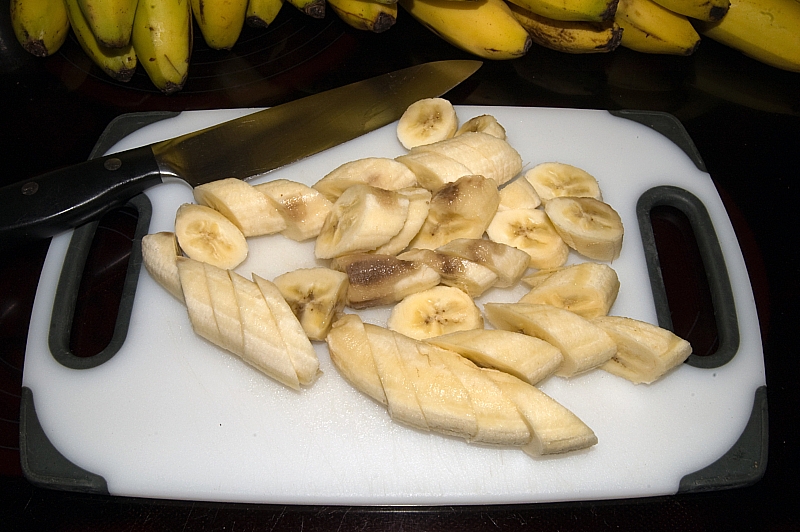
Chopped
Put the chunks onto drying sheets in the dehydrator trays. Nowadays we use proper silicone sheets but baking parchment sheets work just as well. Avoid using greaseproof paper - it tears and leaves bits stuck to the chunks. Don't be tempted to oil the sheets, the chunks will stick hard and will be pulled apart when it's time to peel them off to turn them over. In theory, after the drying process has started, the oil helps a skin to form on the uncut surface. The soaked-in oil then has to migrate through the inside, forcing the internal water out of the oil-free cut faces.
Now you should put the kettle on and make yourself a well-deserved cuppa while leaving the trays uncovered until the chunks just start to blacken, as cut bananas do. 10 - 20 minutes should be enough, much depends on how over-ripe they are and how warm the room is.
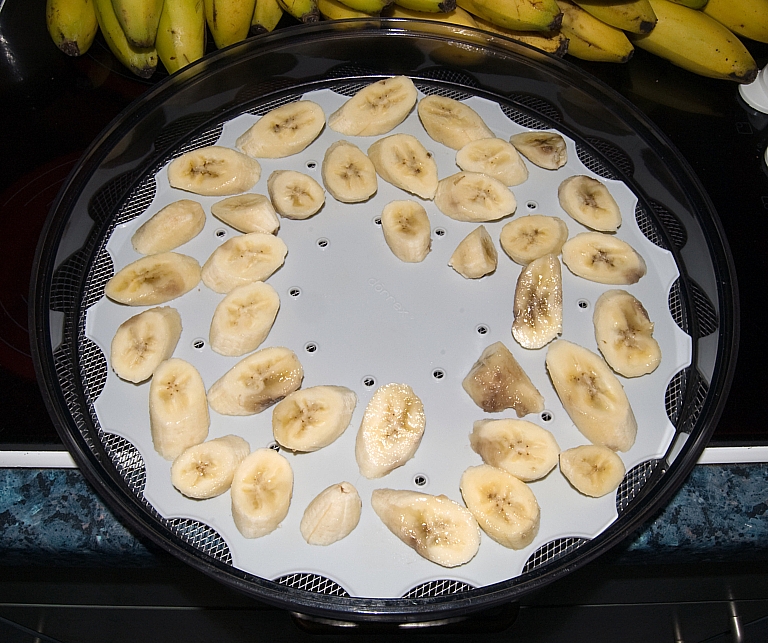
Blackening
After that, stick the trays in the dehydrator at about 70C for 12 hours, re-ordering the stack every so often to ensure that they each get equal amounts of heating and drying.
I'll post again when that bit's finished.

